supporting young people as anti-rumour agents
Local on the North Eastern coast of Sicily, Messina has a long history of trade and migration. Messina is an arrival city and key transit point for Europe, particularly for migrants crossing the Mediterranean from Libya to Italy. Our history is defined by migration and the intermixing of culture and we must ensure this diversity is considered as one of our most positive assets. Therefore, we were very keen to explore anti-rumour methodology and learn from the best practise in Amadora.
“In order to transfer the best practise in the local context, Messina aimed to apply the methodology in the school involving students, families and teachers. Starting from the point of view that the adults are the contaminated subject (even if we don’t admit), we wanted to train the young generation to grow developing prejudice antibodies. The vulnerability of our society and of the human being in general has in fact contributed to raising awareness in the young students participating in the project of how ephemeral any kind of rumors and prejudice can be.”
Dino Alessi, Messina municipality
Our Starting Point
Messina was a partner in the URBACT Action network ‘Arrival Cities’ and we therefore had many important elements in place at the beginning of this transfer process. We had an Integrated Action Plan for Migrant Intergration and an existing diverse and committed local network. However, on a broader level we faced a number of barriers common to many places including negative media reporting and potential lack of support from media for a campaign; and a public distrust of institutions and therefore potential lack of public trust and belief in the counter ‘factual’ information communicated. We had no experience of anti-rumour campaigning and were aware of our need to understand our context- to identify and define which rumours/stereotypes/prejudices to address in transferring the best practice.
Schools as the anti-rumour hubs
Our overall aim was to apply the best practice methodology to the school context involving students, families and teachers. The underlying rationale for this target group was that we viewed younger people as being more open to challenging negative stereotypes. The aspects of our project would be that…
- The students would be the main players of the project. The campaign would be designed to realize a video-format managed by the students and used as a space where young people could confront each other about stereotypes, rumours and prejudices;
- The young people would be involved in the following ways:
- to develop a communication campaign
- to build and manage a youtube channel
- to plan, realize and upload contents on the channel
- to be “anti-rumour” agents
- Through the involvement of the students, their families would be part (directly and indirectly) of the process
- Through the involvement of the schools and students would attract the support of local celebrities.
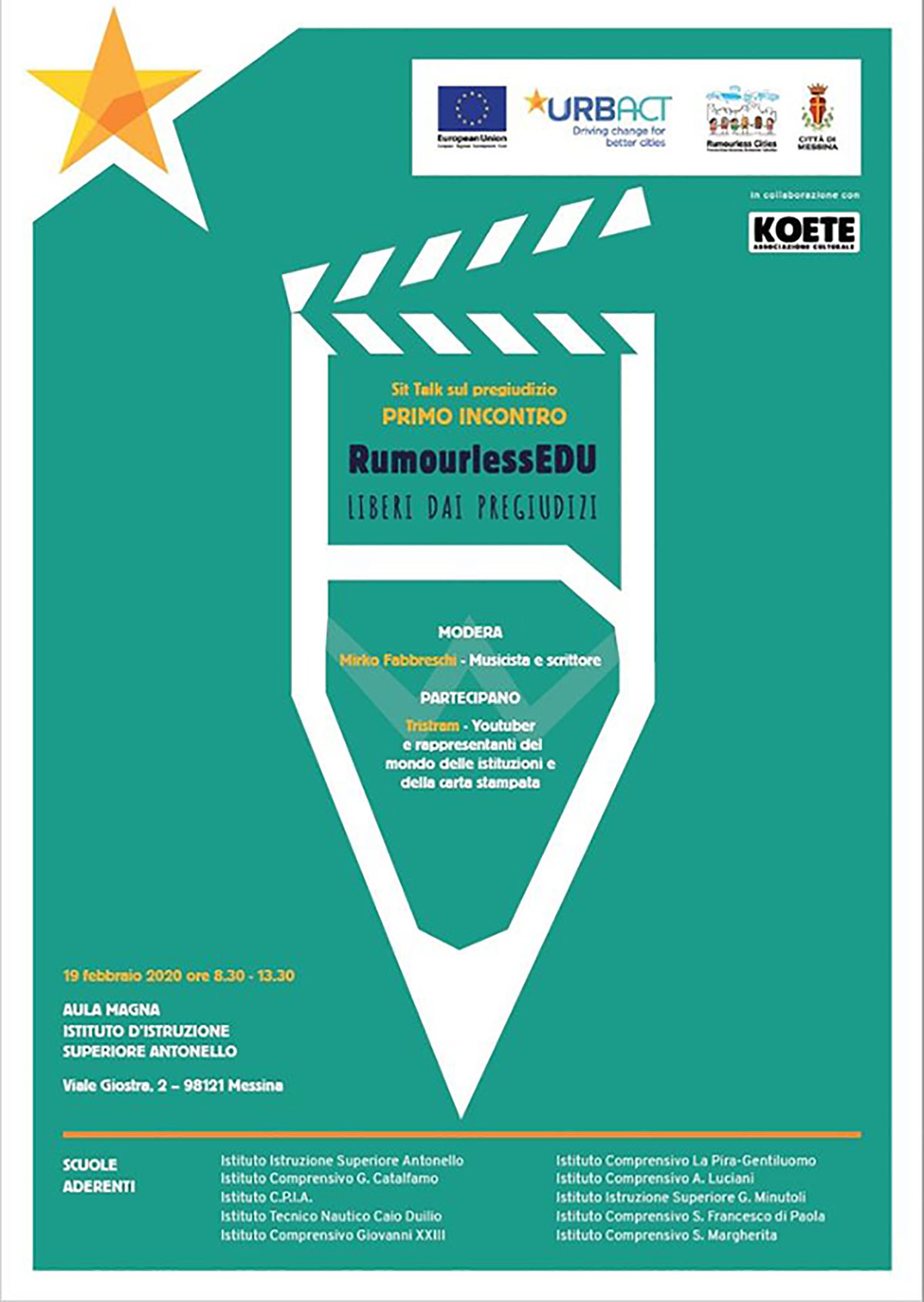 Event bringing all schools together at the beginning
Event bringing all schools together at the beginning
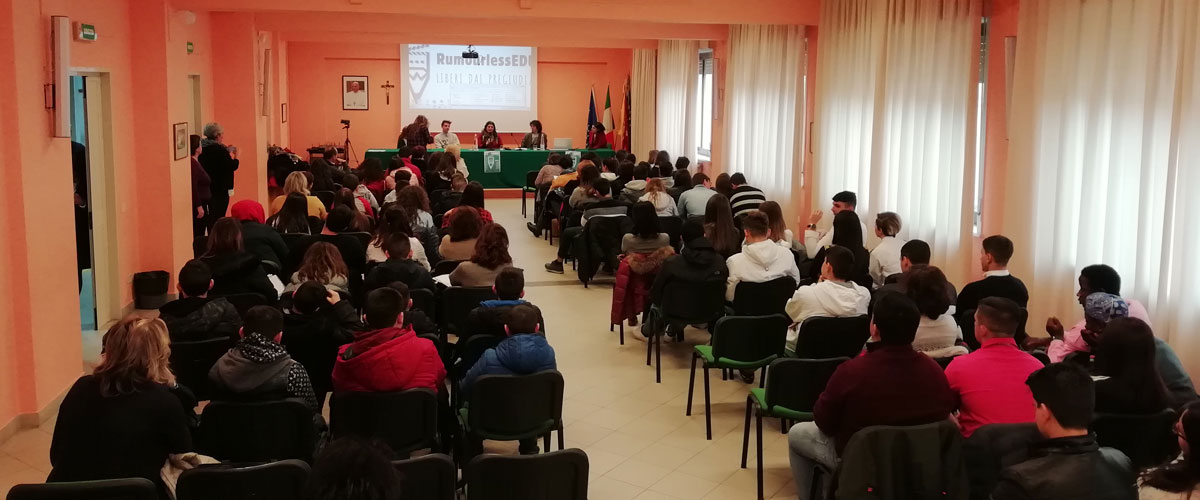 Event bringing all schools together at the beginning
Event bringing all schools together at the beginning
Understanding our context- rumour mapping
We worked with an intern with Moroccan heritage to prepare a questionnaire with students to investigate the nature of discrimination amongst young people in Messina. This survey was very revealing and we believe involving young people and people with a migrant background in the design and interpretation of the research was key to the success of the analysis. Survey results signalled that there was no problem of racial prejudice in a strict sense but serious problems with a lack of information especially among poorer communities. There was in essence a problem of poor education and ignorance but not a problem of hatred. The process of carrying out the survey itself was a "spark" that lit up a long debate with the students and that brought out their deep desire for knowledge.
Creating the campaign
We worked with skilled community film making agency Koete Association to support the young people in schools across Messina to create and produce films. We chose not to focus on a single prejudice but to explore prejudice in a myriad of forms to help students understand how prejudice is formed and maintained including examples from within Italy- eg panettone vs cannolo, north/south, social class, thin/fat etc. Workshops were conducted in a humourous way to be engaging and compelling. Due to the delays caused by Covid, the films are still in the process of being finished.
It is not as yet easy to identify tangible results. What was evident and that leaves us satisfied with the work done was the enthusiastic participation of the students involved in the schools. This has happened even more in schools operating in peripheral areas, where there are major problems of social integration.
One of the best results achieved by the project was that of convincing some representatives of the school world of the importance of networking and also of the high priority of the subject area. The depth and quality of debates in this network led to a greater awareness among the teaching staff participating in the project of the impact of rumours and prejudice and the role of schools in tackling this.
This constitutes the starting point for working together in the future on other projects. The same voluntary associations have formed the basis of collaboration during Covid-19 to carry out all aid interventions for the most disadvantaged sectors of the population in the economic and social sphere.
Key Learning:
- The importance of involving the target group (s) (eg young person, migrant background) in the design of the project and process- not just as recipients/participants- so that it is not institutions speaking but the people you are mobilising.
- The importance of detailed local research to understand the context- it exposed some assumptions which weren't true and lead to some surprises.
- The benefits of using a creative and compelling medium i.e film as a tool to explore social issues and the importance of working with highly skilled participatory filmmakers.
- The power of humour as a gateway into serious issues and the usefulness in exploring the psychology of prejudice more generally rather than just looking directly at difficult subjects- eg racism, sexism.
- The success of bringing school representatives into a local network as active participants- this network is a powerful basis for cooperation on social issues and programmes into the future.
Contact:
- Dino Alessi, Messina Municipality: This email address is being protected from spambots. You need JavaScript enabled to view it.
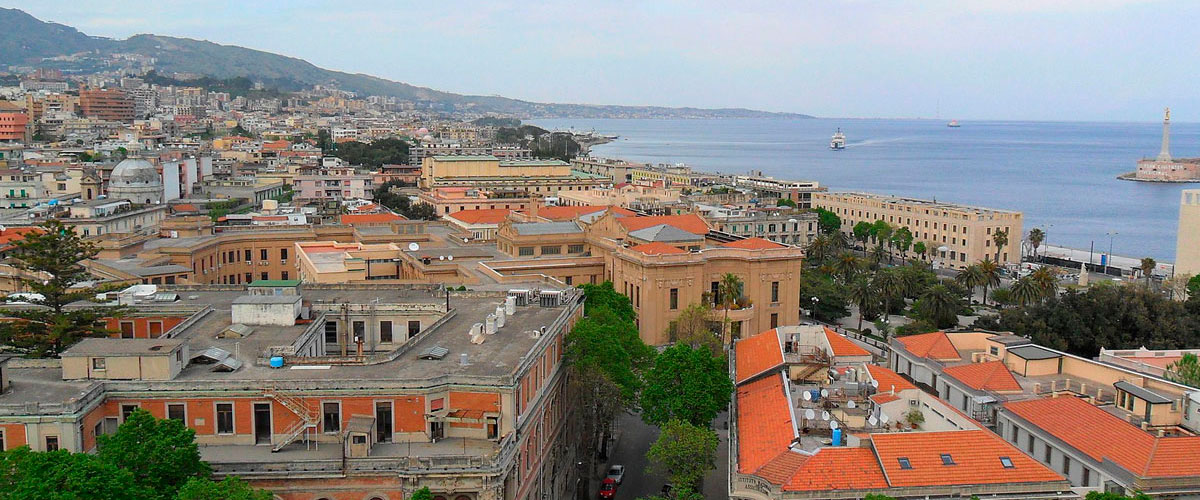
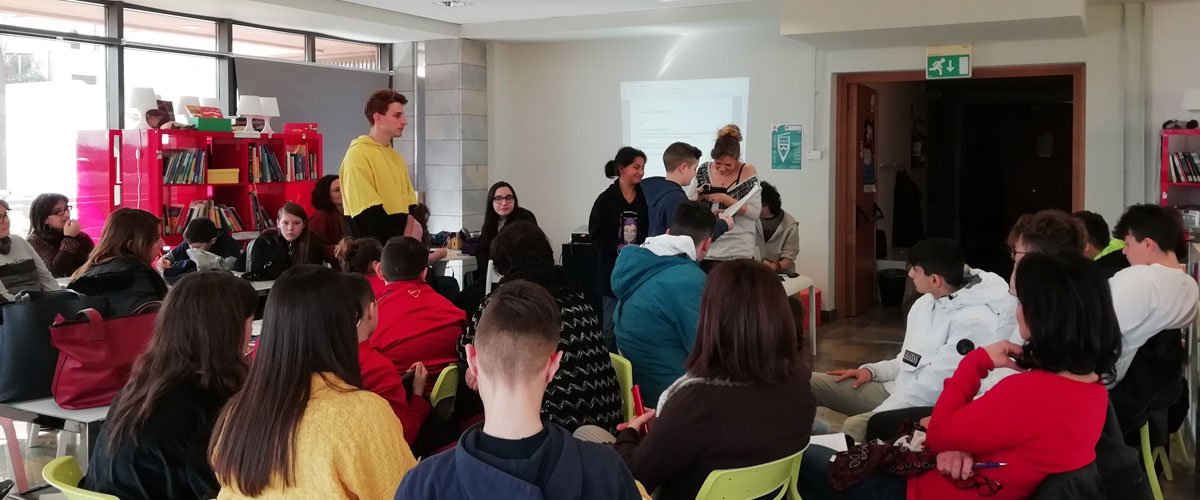 Film-making workshop
Film-making workshop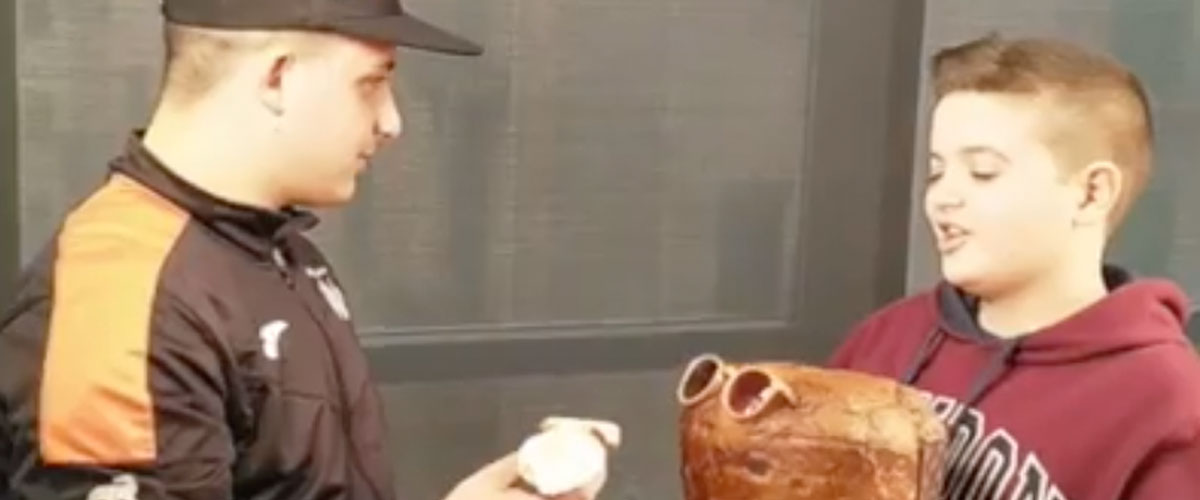 Film-making workshop
Film-making workshop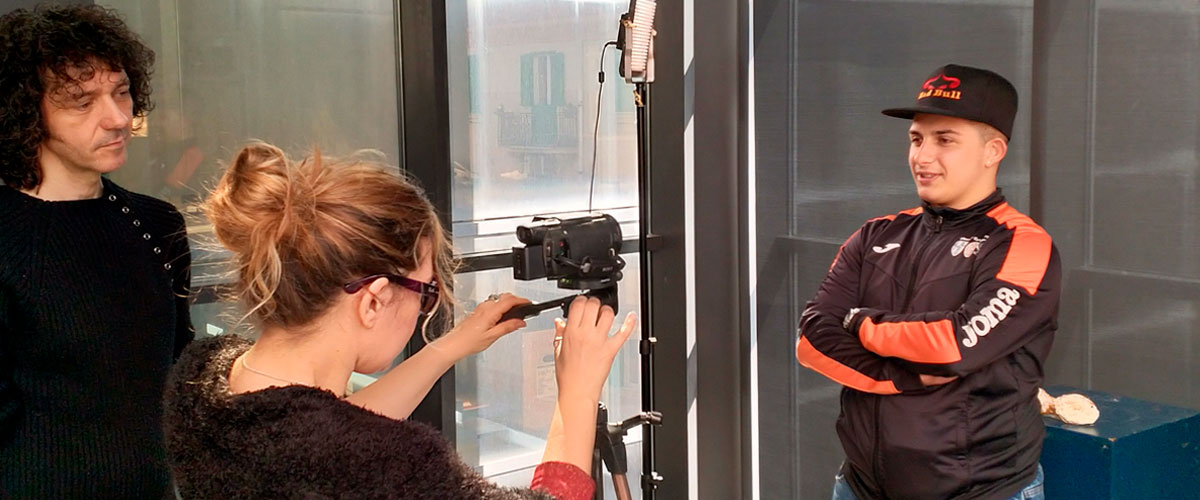 Making the film
Making the film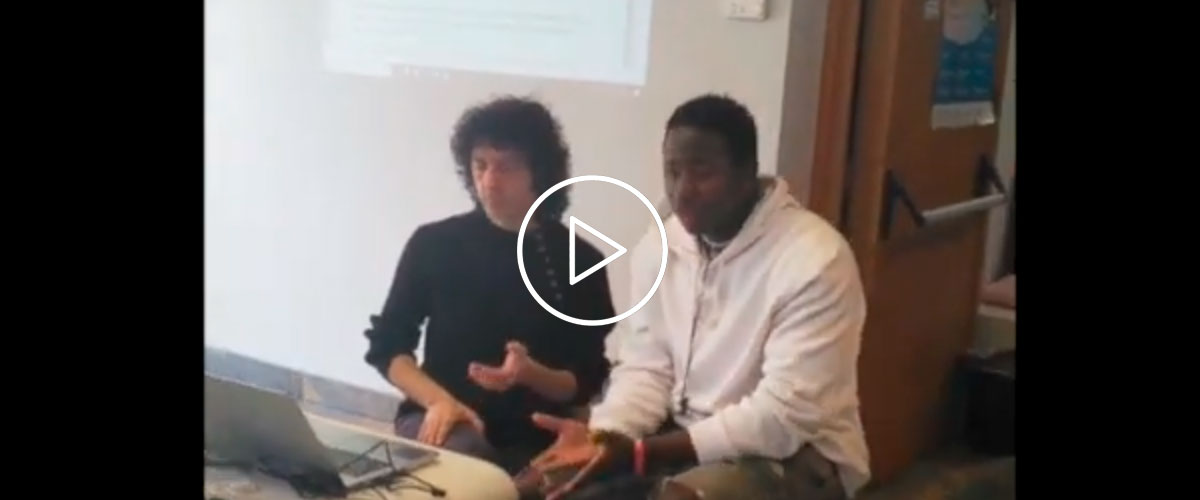 Behind the scenes footage
Behind the scenes footage




